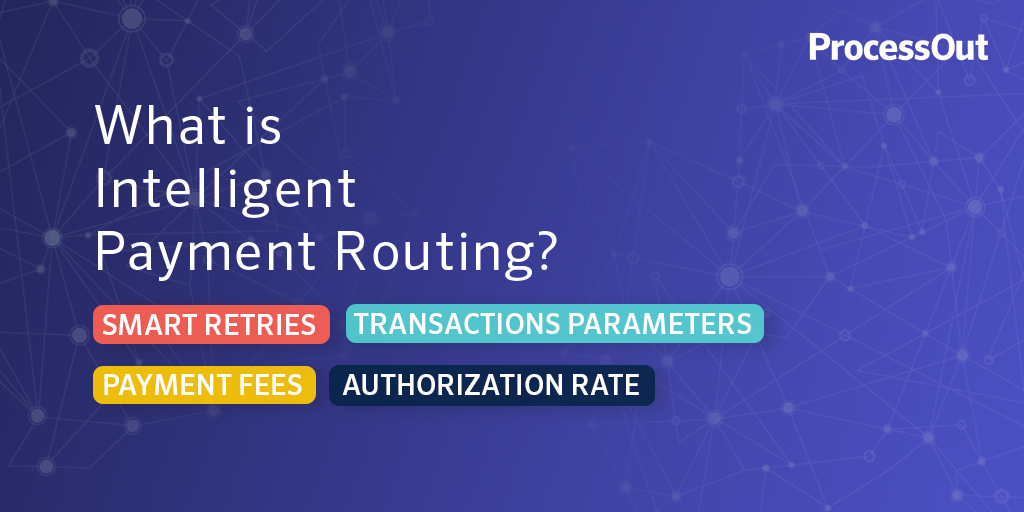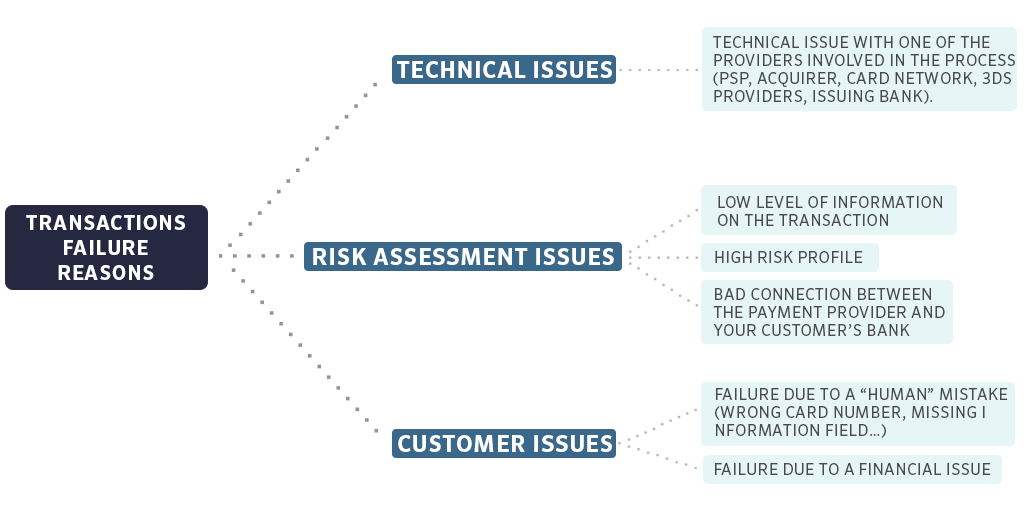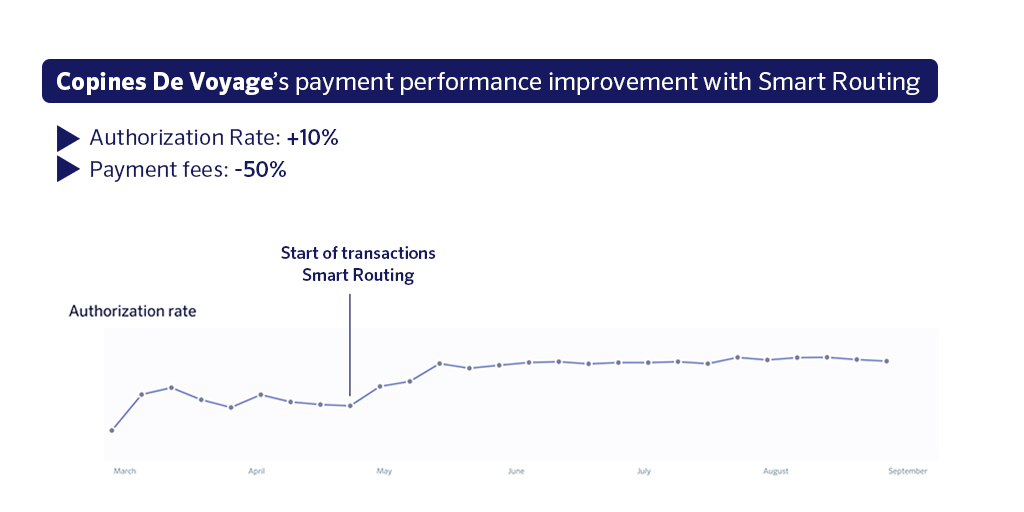What is Intelligent Payment Routing?
by Jérémy Lejoux on
The online payments world has been evolving really fast during the last years. Indeed, local payment service providers, also called PSPs, are becoming more and more commonly used and new regulations (especially PSD2 this year) do not make the task easy when it comes to accepting payments online with great efficiency.

We have come to a point where today, online merchants have a large panel of choices when choosing the PSPs and payment services they want to work with.
How online payments work
The old setup
When setting up their payment infrastructure, online merchants usually want to start accepting payments quite fast without having to worry about building complex infrastructure. Thus, most of the time merchants integrate a single payment service provider in order to start accepting payments straight away. In most cases, the usual setup is then composed of a single PSP working with a single acquirer.
The limits of this setup
Working with a single and global PSP/acquirer is great to quickly start accepting payments. It has a few advantages as all the transactions are in the same format, reconciliation remains simple and it is technically easy to maintain. However, payment in local and emerging countries can sometimes be harder to develop. Some countries or specific markets such as Latam or Asia need local payment service providers in order to achieve adequate payment performance. This setup is also exposed to technical downtimes from the PSP side.
Why payments fail
There are a lot of reasons why a payment can fail but we can split them into three main categories:
- Technical reasons
- Financial reasons, due to the customer
- Risk assessment reasons
Economical reasons are generally the easiest to understand. In most cases, the card limits have been reached or the cardholder account doesn’t have enough money to authorize the transaction. On the other hand, technical and risk assessment reasons are much more complicated. Indeed, transactions can fail because of a technical downtime from one of the key entities involved in a transaction, but it can also be because of a bad acquirer/issuing bank connexion or even fraudulent and risk assessment reasons.
Overall, it is not always easy to spot the reason a specific transaction failed but actions can be taken in order to lower their impact and frequency.
Here is a diagram about the reasons that can make a transaction fail.

Why merchants should dig into payments routing
Nowadays, more and more payment services are talking about payment performance and payment routing. While building a flexible payment architecture can seem hard and complex, efficiently routing online payments can help a lot regarding failed transactions. Generally, merchants are eager to start working with multiple payment service providers in order to avoid technical downtimes, work with local providers and multiple acquirers or even try new PSPs with different fraud scoring algorithms to increase their authorization rate. New providers, sometimes called Payment Orchestration Plateforms, provide products that allow merchants to build and develop their payment infrastructure, vault their customer’s credit cards externally and to optimize their payment performance through unique API integration.
How to do intelligent payments routing
Intelligent payment routing consists of working with multiple payment service providers in order to be able to use the most relevant one for a single transaction. All of this for live transactions and with it being fully transparent to the buyer.
To be able to fully take advantage of intelligent payment routing, it’s important to understand which transaction parameters we can play with to choose which PSP to use or to optimize a transaction for a specific PSP.
Parameters we can play with
There are obviously some parameters that we won’t be able to optimize such as the country in which the card was issued or even the bank that issued the card with which the buyer is trying to pay. Furthermore, there are also some parameters issued by the merchants which we can’t change as the transaction amount or currency (except using some specific solution providers or playing with several merchant accounts with different currencies). That being said, what is important with those parameters is that they can be used in order to determine which payment service provider is the most relevant to handle a specific transaction.
Once a transaction has been fully analyzed we are now in a position to play with the different parameters, and these can be changed without having the buyer interact with the payment page again. Thus, we can now choose the PSP, the merchant account or even the acquirer that should be used to handle the transaction. In some cases, for example, having a local PSP with a local merchant account in emerging countries will help a lot, increasing the payment performance.
Additional routing possibilities
Once a merchant is able to determine which PSP should be used and with what parameters for a specific transaction there are still a few options that can be really helpful when routing payments in order to increase its payment performance.
One of the major benefits of working with multiple providers is the ability to use cross PSP retries for failing transactions. Indeed, instead of just determining which PSP would be the most relevant for a specific transaction, doing intelligent payment routing is more than that. When dealing with multiple PSPs, one of the major benefits is the possibility to do cascading.
Also, using intelligent payment routing strategies allows merchants to split their transactions to different merchant accounts depending on some parameters like the transaction currency or its risk level.
The benefits
Overall, doing intelligent payment routing allows merchants to increase their global authorization rate through cascading and smart retries, lower the payment fees by determining the best PSP to handle a specific transaction straight away and improve their user experience by decreasing payment failures and user manual retries.

